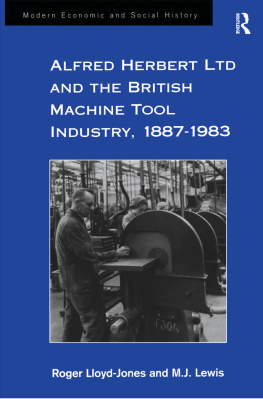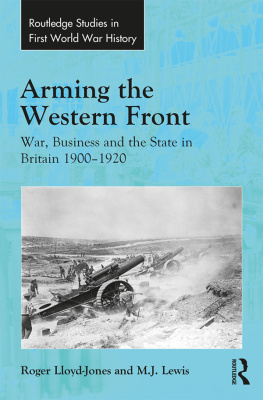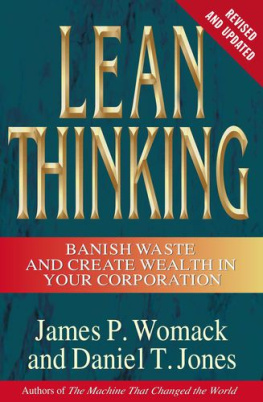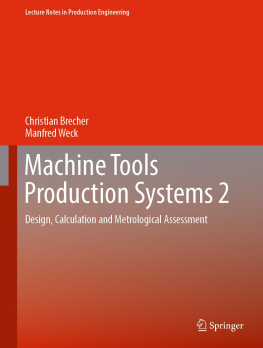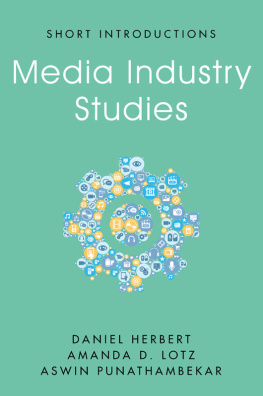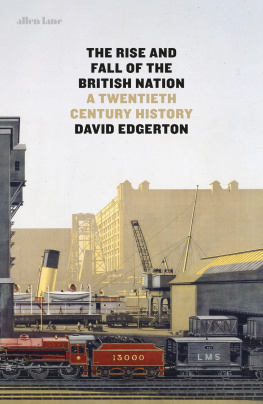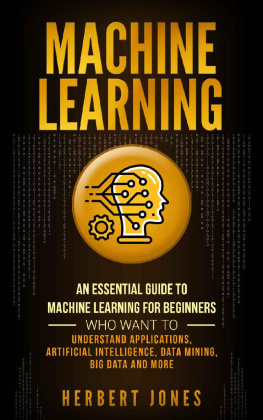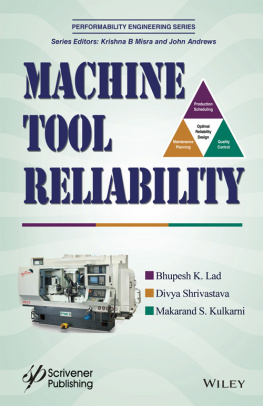ALFRED HERBERT LTD AND THE BRITISH
MACHINE TOOL INDUSTRY, 1887-1983
Modern Economic and Social History Series
General Editor: Derek H. Aldcroft
Titles in this series include:
Taste, Trade and Technology The Development of the International Meat Industry since 1840 Richard Perren
The Popularization of Malthus in Early Nineteenth-Century England Martineau, Cobbett and the Pauper Press James P. Huzel
Europe's Third World The European Periphery in the Interwar Years Derek H. Aldcroft
Industrial Reorganization and Government Policy in Interwar Britain Julian Greaves
The Hidden Cost of Economic Development The Biological Standard of Living in Antebellum Pennsylvania Timothy Cuff
emons of Domesticity Women and the English Gas Industry, 1889-1939 Anne Clendinning
Britain and the Economic Problem of the Cold War The Political Economy and the Economic Impact of the British Defence Effort, 1945-1955 Till Geiger
Reconstruction and Cold War in Germany The Kreditanstalt fr Wiederaufbau (1948-1961) Armin Grnbacher
Exchange Rates and Economic Policy in the 20th Century Edited by Ross E. Catterall and Derek H. Aldcroft
An Affluent Society? Britain's Post-War 'Golden Age' Revisited Edited by Lawrence Black and Hugh Pemberton
Alfred Herbert Ltd and the British Machine Tool Industry, 1887-1983
Roger Lloyd-Jones and M.J. Lewis
Sheffield Hallam University, UK
First published 2006 by Ashgate Publishing
Published 2017 by Routledge
2 Park Square, Milton Park, Abingdon, Oxon, OX14 4RN
711 Third Avenue, New York, NY 10017, USA
Routledge is an imprint of the Taylor & Francis Group, an informa business
Copyright Roger Lloyd-Jones and M.J. Lewis 2006
Roger Lloyd-Jones and M.J. Lewis have asserted their moral right under the Copyright, Designs and Patents Act, 1988, to be identified as the authors of this work.
All rights reserved. No part of this book may be reprinted or reproduced or utilised in any form or by any electronic, mechanical, or other means, now known or hereafter invented, including photocopying and recording, or in any information storage or retrieval system, without permission in writing from the publishers.
Notice:
Product or corporate names may be trademarks or registered trademarks, and are used only for identification and explanation without intent to infringe.
British Library Cataloguing in Publication Data
Lloyd-Jones, Roger, 1944
Alfred Herbert Ltd and the British machine tool industry, 1887-1983. - (Modern
economic and social history)
1. Alfred Herbert Ltd. 2. Machine-tool industry - Great Britain - History - 20th
century
I. Title II. Lewis, M.J. (Myrddin John), 1957
338.4'7621902'0941'0904
Library of Congress Cataloging-in-Publication Data
Lloyd-Jones, Roger, 1944
Alfred Herbert Ltd. and the British machine tool industry, 1887-1983 / Roger
Lloyd-Jones and M.J. Lewis.
p. cm. (Modern economic and social history)
Includes bibliographical references and index.
ISBN 0-7546-0523-X (alk. paper)
1. Alfred Herbert Ltd.History. 2. Machine-tool industryGreat Britain
History. I. Lewis, M.J. (Myrddin John), 1957- II. Title. III. Series: Modern
economic and social history series.
HD9703.G74A442005
338.7'61621902'0941dc22
2005013239
ISBN 13: 978-0-7546-0523-2 (hbk)
For Abby, Emily, Alistair, Phoebe, Mason, Robert
Economic and social history has been a flourishing subject of scholarly study during recent decades. Not only has the volume of literature increased enormously but the range of interest in time, space and subject matter has broadened considerably so that today there are many sub-branches of the subject which have developed considerable status in their own right.
One of the aims of this series is to encourage the publication of scholarly monographs on any aspect of modern economic and social history. The geographical coverage is world-wide and contributions on the non-British themes will be especially welcome. While emphasis will be placed on works embodying original research, it is also intended that the series should provide the opportunity to publish studies of a more general thematic nature which offer a reappraisal or critical analysis of major issues of debate.
Derek H. Aldcroft
University of Leicester
We would like to thank the following: Professor Derek Aldcroft for his encouragement of our research work on the British machine tool industry; Simon Brown and his staff at Lancaster Gate, London, who allowed us to use the private papers of the Machine Tool Trade Association. The professionalism of the staff at Coventry Archive was a great aid in our long labours on the Alfred Herbert papers. Also we would like to thank the staff of the West Yorkshire Archive Service, Leeds and Halifax, the Glasgow University Archives and Business Research Centre, and the Bodleian Library, University of Oxford. The research was supported by sabbatical leave granted by the Humanities Research Centre at Sheffield Hallam University. Our appreciation to the following for putting up with our long discussions on the machine tool industry: Professor Peter Cain, Professor Josephine Maltby, and Dr. Mark Matthews. Colleagues at various conferences where we gave papers on aspects of the project also produced valuable advice. Finally, I am sure that our wives are relieved that our obsession with the machine tool industry is more or less complete.
CHAPTER ONE
Introduction
The machine tool industry formed a small but vital part of Britain's manufacturing sector, and this study examines its development over the twentieth century. The importance of the industry's contribution to the health and efficiency of the manufacturing economy was reflected in the influential Mitchell Report of 1960. While the report was a public condemnation of the industry's technical record, it nevertheless recognised that the British machine tool industry had developed a reputation 'throughout the world as an excellent producer of standard machine tools of all categories: it supplies almost the whole home demand for such machine tools and exports approximately 30 per cent of its production'. The machine tool industry at various stages of its evolution received scathing criticism over its performance, but, as we shall demonstrate, it also produced positive outcomes that marked it as an important sector of the British manufacturing economy.
The broad approach of this book is to examine the industry's development through the lens of its largest firm, Alfred Herbert Ltd, of Coventry, founded in 1887, In the years before the First World War Herbert's grew to be the largest machine tool maker in Europe, and by the 1950s claimed to be the largest machine tool organisation in the world. The role of this company is suggestive of Nelson's metaphor of the 'player and the game', and this is used in a reflective sense to generally inform the relationship between the firm, the industry, and the marketcum-technological environment.
Yet a sub-committee of the Machine Tool Trade Association (MTTA), the main body representing the industry, while adhering to some of the recommendations of the report, nevertheless condemned a process of rationalisation. Echoing the views of Sir Alfred Herbert, expressed in the 1930s, the sub-committee accepted that individualism was deeply embedded in the industry, but that recommendations for a significant reduction in the number of firms suggested 'a certain degree of tolerance for the idea of the establishment of a monopoly'

